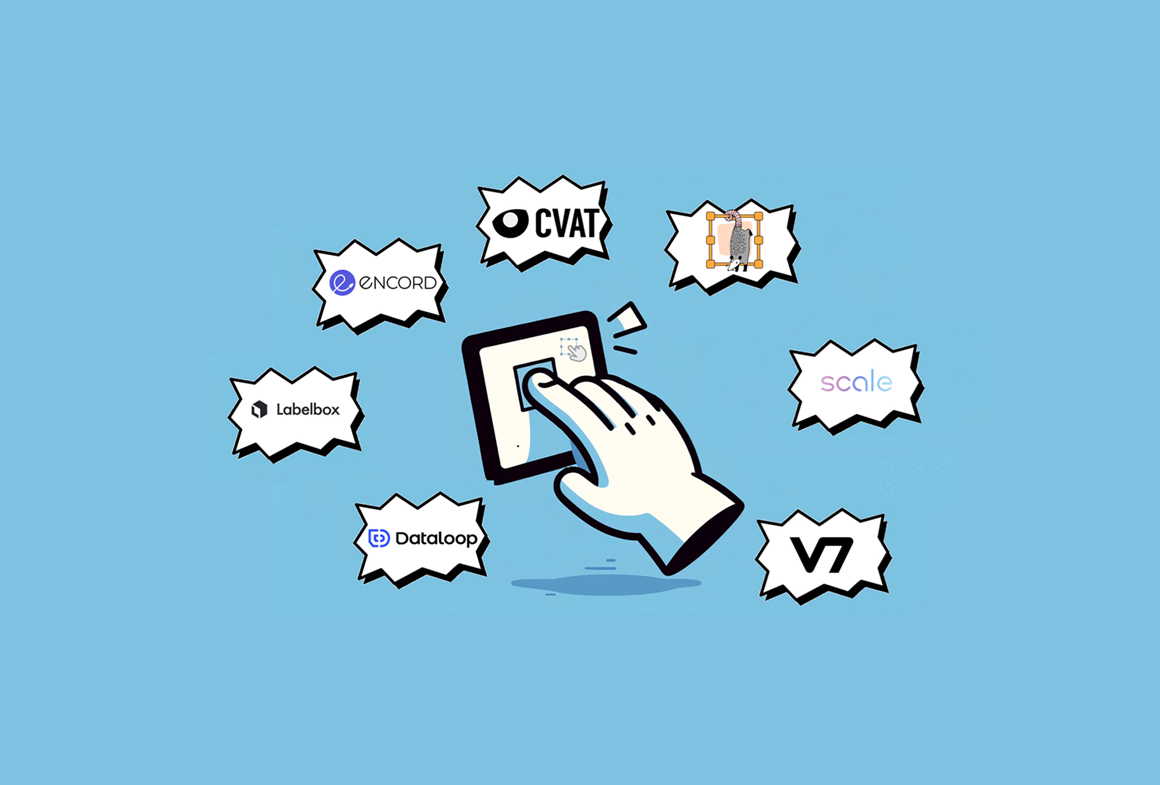How to use Artificial Intelligence to enhance customer relations?

Introduction to AI in customer relations
In a world of increasingly fierce competition, delivering an outstanding customer experience has become a real challenge for companies. The impact of AI on customer relations is significant, particularly in terms of improving the customer experience, providing real-time assistance and personalizing interactions.
An essential component of this improvement is the integration of artificial intelligence (AI) into customer services. Artificial intelligence presents itself as an innovative solution for improving efficiency and customer satisfaction. By automating certain tasks and analyzing data, AI makes it possible to optimize the customer journey and offer personalized service.
💡 In this article, we'll take a look at the different ways AI can be put to work in customer relations, including Text-to-Speech technology and callbots, and we'll introduce you to YeldaAI, an AI-enabled callbot creation solution. Artificial intelligence also plays a key role in personalizing customer interactions. Finally, we'll look at the ethical challenges and limits of using AI in customer relations.
AI for better customer knowledge
To deliver a personalized customer experience, it's essential to understand consumers' needs. Artificial intelligence makes it possible to analyze customer data and identify their needs, preferences and purchasing behaviors. However, consumer expectations in terms of customer experience pose significant challenges for the use of AI, particularly in terms of its effectiveness and the conditions required for its deployment.
Personalizing the customer experience is made possible by AI, which enables unique interactions tailored to individual needs. Thanks to machine learning, AI algorithms can process and interpret data from a variety of sources (social networks, e-mails, purchase history, etc.) to create detailed customer profiles.
This in-depth knowledge enables companies to tailor their offer and communication to each customer's expectations. What's more, AI can predict future customer behavior, enabling companies to anticipate their needs and propose proactive offers.
It's important to note that the use of customer data must comply with current regulations, such as the General Data Protection Regulation (GDPR) in Europe. Companies must guarantee transparency, security and respect for customer privacy when collecting and processing their data.
Automate tasks to save time and increase efficiency
AI makes it possible to automate certain repetitive and time-consuming tasks, such as managing e-mails, scheduling appointments or handling complaints. The impact of this AI-driven automation translates into a significant improvement in customer service quality, offering faster, more personalized responses.
Thanks to chatbots and virtual assistants, customers get instant answers to their questions, 24/7. As a result, employees can concentrate on higher value-added tasks, such as providing advice and personalized customer support. Automating tasks also helps reduce human error and improve the quality of customer service.
However, it's essential to strike the right balance between automation and human interaction. Customers appreciate the speed and efficiency of automated solutions, but they also want human contact when necessary.
Finally, it's always worth remembering that companies need to ensure they offer a consistent, harmonious customer experience, combining the benefits of AI with those of interaction.
Text-to-Speech: a technology to enhance the customer experience
Text-to-speech (TTS) is a technology that converts written text into spoken speech. Thanks to artificial intelligence, synthetic voices are becoming increasingly natural and realistic. This technology offers numerous possibilities for improving customer relations by using artificial intelligence to offer immediate, high-quality assistance 24/7.
For example, companies can offer personalized audio content (newsletters, promotional offers, etc.) or facilitate access to information for the visually impaired or illiterate.
Text-to-Speech can also be integrated into customer relationship management (CRM) systems to automate the reading of customer notes and comments, saving teams time and improving productivity.
Callbots: voice assistants for optimized customer relations
Callbots are voice assistants that use artificial intelligence to optimize customer relations by understanding and processing customer requests over the telephone. They can handle incoming calls, qualify requests and direct customers to the appropriate department.
Callbots reduce waiting times and improve customer satisfaction. In addition, they can be used to make outbound calls, such as appointment reminders or satisfaction surveys.
Among callbot solutions, YeldaAI stands out for its AI-based callbot creation software. Thanks to an intuitive interface, companies can quickly design and deploy customized callbots, without any special technical skills. YeldaAI offers a turnkey solution for optimizing customer relations and improving team efficiency.
💡 In this article, discover our case study on an innovative voice assistant: YeldaAI!
The benefits of AI in customer relationship management
Artificial Intelligence offers many advantages for customer relationship management. Artificial intelligence optimizes the customer experience by personalizing interactions and using chatbots and voicebots to respond to customer requests, by analyzing feelings to measure customer satisfaction, and by personalizing customer relations through the detection of emotions and needs.
Firstly, it can process large volumes of data in real time, providing a 360-degree view of the customer. This in-depth analysis helps identify emerging trends and needs, enabling companies to remain proactive and reactive.
In addition, AI can improve the accuracy of product or service recommendations, based on purchase history and customer preferences.
Secondly, AI helps reduce operational costs. By automating repetitive tasks, companies can free up human resources to focus on higher value-added activities.
For example, customer service agents can spend more time solving complex problems or building closer relationships with customers. This leads to an overall improvement in customer satisfaction and loyalty.
Finally, AI enables a consistent customer experience across all touchpoints. Whether via chatbots on the website, callbots on the phone or virtual assistants on social networks, customers benefit from consistent, efficient service. AI also ensures that customer service is available 24/7, meeting the expectations of modern customers who demand fast, accurate answers at all times.
The challenges and ethical issues of AI in customer relations
Despite its many benefits, the use of AI in customer relations also poses significant challenges and ethical issues. The impact of AI on data protection and algorithm transparency is crucial to consider to ensure responsible and ethical use in customer relations. One of the main challenges is to guarantee the protection of customers' personal data.
With the massive collection of data needed to train AI algorithms, companies must ensure they comply with data protection regulations, such as the RGPD in Europe. It's crucial to implement robust security measures to prevent data breaches and ensure the confidentiality of customer information.
Another ethical issue concerns the transparency and fairness of AI algorithms. Companies need to ensure that AI models do not discriminate against certain customer groups, and that they are designed fairly. This means regularly monitoring and adjusting algorithms to avoid biases, which can be unintentionally introduced during the model training phase.
Finally, it's essential to maintain a balance between automation and human interaction. While AI can greatly improve the efficiency and speed of customer service, it must not completely replace human contact.
Customers often value the human dimension of customer relations, and it's important to preserve this interaction for complex or emotionally charged situations. Companies therefore need to strike the right balance between the use of AI and human intervention to deliver an optimal customer experience.
Case study: YeldaAI and the transformation of customer relations
A telecommunications company, for example, used YeldaAI to automate its inbound call management. Thanks to callbots, it was able to significantly reduce waiting times and improve customer satisfaction.
The callbots were able to handle simple, frequent requests, allowing human agents to concentrate on more complex problems. What's more, YeldaAI enabled the company to personalize interactions according to each customer's profile, offering a tailored service.
Another example is an e-commerce company that used YeldaAI to automate its appointment reminders and satisfaction surveys. The callbots not only reduced the number of missed appointments, but also collected valuable feedback that helped the company improve its products and services. The integration of YeldaAI has therefore led to an increase in customer loyalty and continuous improvement of the company's offering.
Conclusion
Artificial intelligence offers many opportunities to improve customer relations by providing immediate, quality assistance 24/7, using familiar communication channels such as WhatsApp, and capturing customer emotions to deliver an adaptive, responsive experience. By leveraging better customer knowledge, task automation, Text-to-Speech and callbots, companies can offer an optimized, personalized customer experience.
Solutions such as YeldaAI make it quick and easy to set up high-performance callbots to meet the challenges of customer relations. However, it is essential to take into account the ethical issues and limits of using AI in customer relations, in order to guarantee a balanced and respectful customer experience.
Going further... the future of AI in customer relations
The future of artificial intelligence in customer relations looks bright, with technological advances continuing to transform the way companies interact with their customers. AI innovations such as machine learning, natural language natural language processing and predictive analytics, offer exciting prospects for further enhancing the customer experience.
One of the emerging trends is the use of artificial intelligence to deliver seamlessly integrated omnichannel experiences. Modern customers use multiple communication channels (e-mail, chat, telephone, social networks, etc.) and expect a seamless, consistent experience whatever channel they use.
What's more, artificial intelligence makes it possible to centralize and analyze interactions across all these channels, providing a unified view of the customer and enabling responses and recommendations to be personalized in real time.
What's more, artificial intelligence is increasingly being used to anticipate customer needs through predictive analytics. By analyzing historical data and purchasing behavior, AI algorithms can predict future demand and help companies prepare proactive offers. This can mean personalized product recommendations, targeted promotional offers and proactive inventory management.
Finally, artificial intelligence will continue to evolve to offer more natural and intuitive interactions. Advances in natural language processing are already enabling the creation of chatbots and callbots capable of understanding and responding to customer requests with greater precision.
In the future, these interactions will become even more fluid and human, thanks to ongoing improvements in speech recognition and language generation technologies.
🪄In short, artificial intelligence is redefining customer relations. Companies that know how to leverage these innovations to deliver exceptional customer experiences will be well positioned to stand out from the competition and build long-term customer loyalty.





